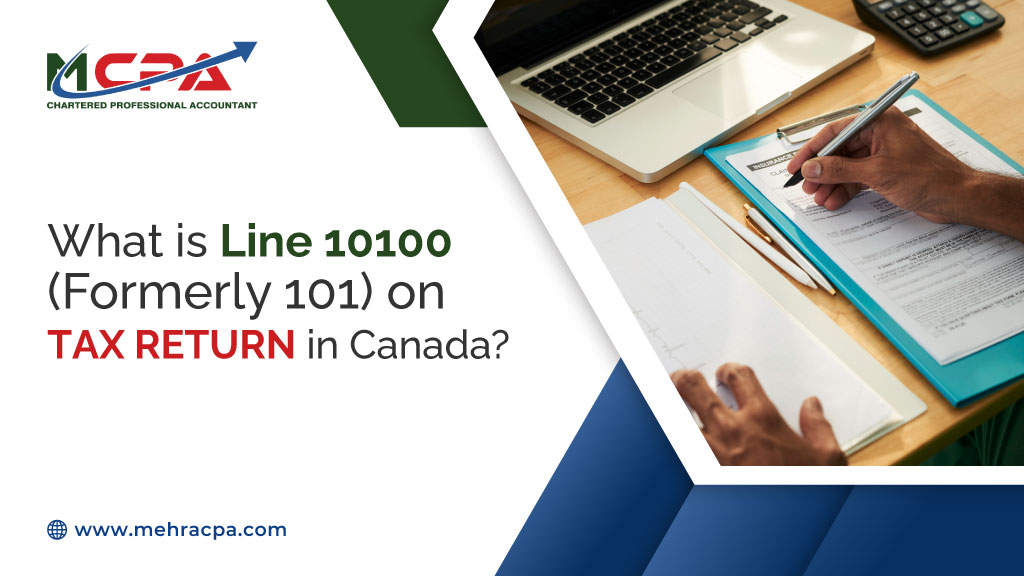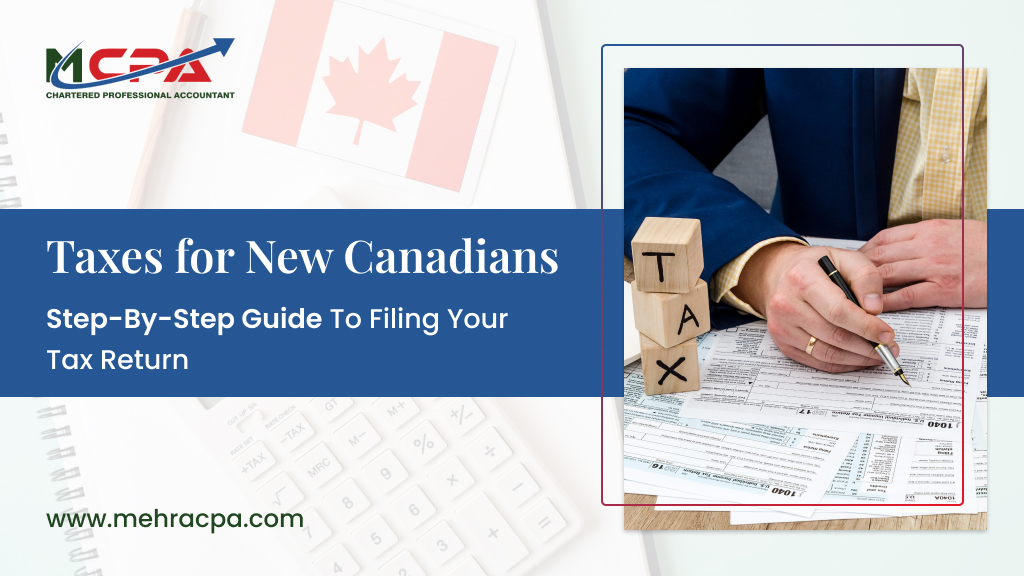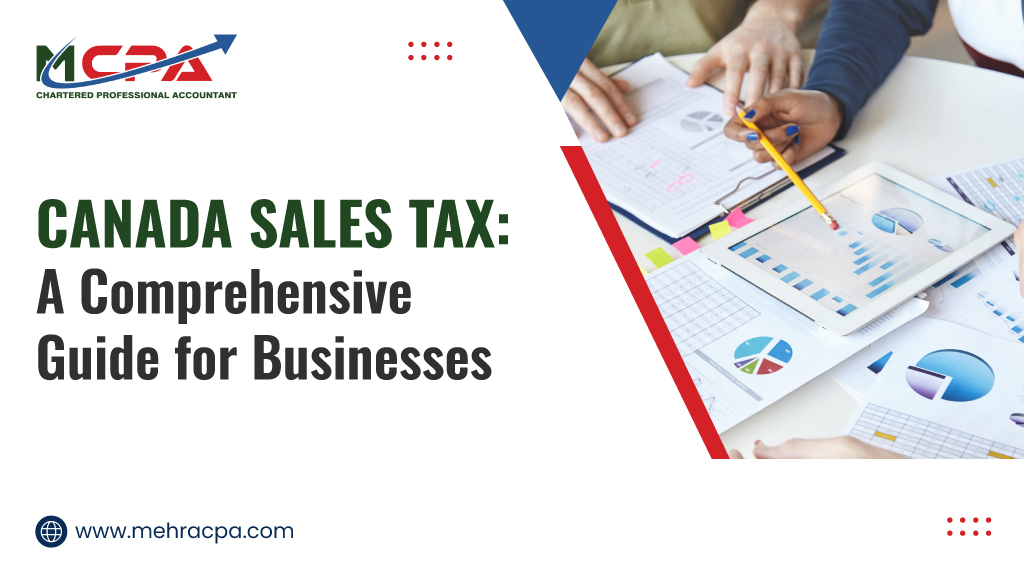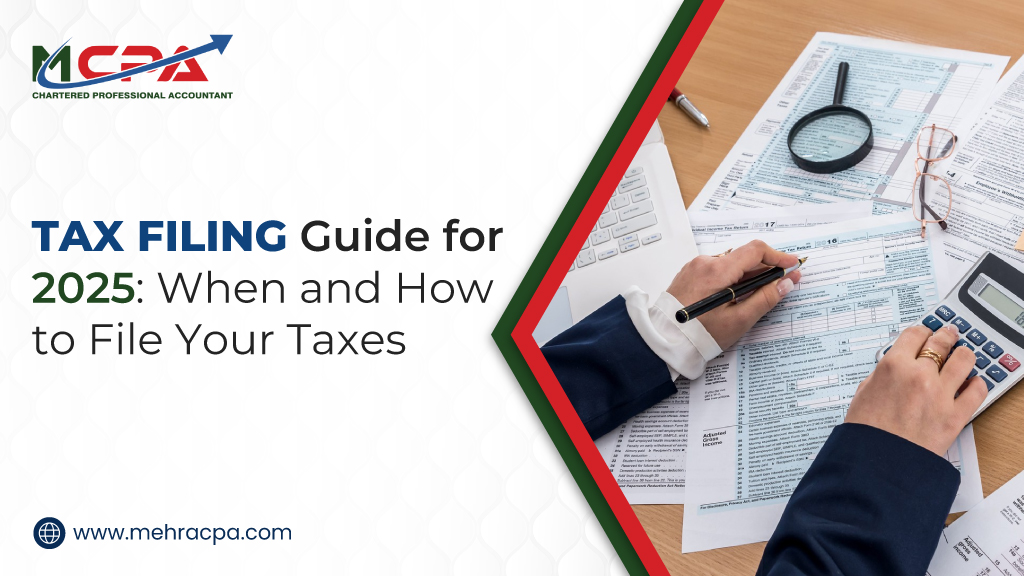
Recent Post
2025 Canadian Tax Deadlines: Everything You Need to Know
Every year, Canadians are required to file their taxes on…
Taxes for New Canadians: Step-by-Step Guide to Filing Your Tax Return
Moving to Canada is an exciting journey filled with new…
Canada Sales Tax: A Comprehensive Guide for Businesses
What is Sales Tax? If you own a business in…
Tax Filing Guide for 2025: When and How to File Your Taxes
Filing taxes can seem like a daunting task, but with…
When it comes to taxes, understanding the finer details can feel like navigating a maze. Line 10100, which relates to your employment income, is one of the most important lines on your Canadian tax return. But what does it encompass? How can you ensure accuracy when filling it out? This blog breaks it all down, helping you understand why Line 10100 matters and how to avoid potential tax headaches. Whether you’re filing independently or seeking professional help, this guide is for you.
What is Line 10100?
Line 10100 is where you report all the employment income you’ve earned over the tax year. It includes wages, salaries, tips, commissions, bonuses, and more. Previously known as Line 101 before 2019, this part of the tax return is crucial because it forms the foundation for your taxable income calculation. The Canada Revenue Agency (CRA) uses this line to determine how much tax you owe, making it essential to get it right.
Key Elements Included in Line 10100:
- Wages and Salaries: This is the most straightforward form of income—money earned through employment.
- Tips and Gratuities: If you work in service industries where tips supplement your wages, you must report all these earnings.
- Commissions: For those working in sales or similar roles, any commissions you receive are part of your employment income.
- Bonuses: If your employer rewards you with a bonus, whether performance-based or otherwise, it also needs to be added.
- Honoraria: Payment for services where a set price is not established, or where you are not allowed to charge a fee, must be included here.
It is essential to include all types of employment-related income on Line 10100 because any discrepancies can lead to issues with your tax filing. If you’re ever uncertain about what qualifies as employment income, it’s better to double-check with a tax professional or the CRA itself to avoid errors.
Why is it Crucial to Report Line 10100 Correctly?
Filing taxes can be daunting, especially if you’re juggling multiple sources of income or are unsure of the nuances. Reporting income inaccurately on Line 10100 can lead to hefty penalties. If you underestimate your income, you could owe the CRA more tax than expected, and interest may be added. On the flip side, overreporting could result in paying more tax than necessary, leaving you financially strained.
For small businesses and individuals alike, accurate reporting is critical. According to the CRA, misreporting your income on Line 10100 can trigger audits or reassessments, potentially leading to long-term financial repercussions.
Failing to report income can result in interest charges and possible penalties, making it crucial to report every penny earned. Taking the time to review your income statements and ensuring accuracy on Line 10100 will help prevent unnecessary complications.
Where Does the Data for Line 10100 Come From?
Most of the data you need to report on Line 10100 will come from your T4 slips, which are issued by your employers. The T4 slip includes:
- Box 14 (Employment Income): This is the primary box on your T4 that shows your total employment earnings. It’s the amount you’ll report on Line 10100.
- Box 71 (Lump-Sum Payments): If you’ve received lump-sum payments, they must also be recorded.
If you’ve worked multiple jobs or have more than one T4 slip, simply add the amounts together and input the final sum on Line 10100.
What Happens If You Don’t Have a T4 Slip?
In cases where you worked in a casual or contract role without a formal T4, you’re still legally obligated to report your earnings. This can complicate things, as you’ll need to keep track of your income independently. Failing to report these earnings can result in penalties or fines from the CRA.
Even without a T4 slip, it’s your responsibility to track and declare all sources of employment income, including payments made through informal agreements or freelance work. Keeping detailed records can help protect you from penalties.
Line 10100 vs. Line 15000: Key Differences
Line 10100 plays a crucial role in determining how much income tax you owe, but understanding the different categories of income can help prevent errors. Income earned from multiple jobs, casual work, or freelance gigs should all be accurately reported on this line. Additionally, reviewing your T4 slip carefully can save you from mistakes that might cost you.
While Line 10100 captures your total employment income, Line 15000 represents your overall income from all sources. This includes not just wages and salaries but also:
- Rental income
- Investment income
- RRSP withdrawals
- Capital gains
For many, Line 10100 and Line 15000 will be the same if employment is your only source of income. However, for individuals with diversified income streams, it’s essential to distinguish between the two. Line 10100 is solely for employment income, whereas Line 15000 is the sum of all forms of income you’ve received in a given year.
Common Mistakes When Reporting Line 10100
Given the significance of Line 10100, it’s important to avoid common errors:
- Forgetting to Report Tips or Commissions: If you earn tips or commissions, you must report them even if your employer doesn’t include them on your T4 slip.
- Double-Counting Income from Multiple Jobs: If you’ve had multiple jobs, ensure that you accurately sum your income from all employers.
- Failing to Report Casual Work: All earnings, even those not formally documented on a T4, need to be reported.
Another common mistake is assuming that part-time or temporary work income doesn’t need to be reported. Regardless of how much you earn from a job, it must be included on your tax return to avoid penalties.
Deductions That Apply After Reporting Line 10100
Once you report your employment income on Line 10100, you can explore deductions and credits that can lower your taxable income. For example:
- RRSP Contributions: You can deduct contributions to your Registered Retirement Savings Plan (RRSP) from your total income, reducing your taxable amount.
- Union Dues and Professional Fees: These can often be deducted directly from employment income, saving you tax dollars.
- Childcare Expenses: If you’ve incurred childcare costs due to employment, you may be eligible for deductions that directly reduce your taxable income.
Taking advantage of tax deductions and credits, such as the Canada Employment Amount, can further reduce your overall tax burden. Deductions are especially helpful if you’re near the threshold of moving into a higher tax bracket.
How Does Line 10100 Affect Your Overall Tax Calculation?
The income reported on Line 10100 serves as the starting point for the CRA to calculate your total tax liability. Based on this figure, your tax rate will depend on which income bracket you fall into. From there, deductions and non-refundable tax credits come into play, ultimately determining your final tax bill or refund.
For example, as of 2023, the federal tax brackets in Canada were:
- 15% on income up to $53,359
- 20.5% on income between $53,359 and $106,717
- 26% on income between $106,717 and $165,430
- 29% on income between $165,430 and $235,675
- 33% on income over $235,675
The income reported on Line 10100 will determine which of these tax rates apply, making it a critical figure in your tax calculation.
It’s also important to remember that provincial tax rates vary, so your total tax bill may differ based on your location. Being mindful of both federal and provincial tax brackets ensures accurate tax planning.
Line 10100 for the Self-Employed: What Changes?
For self-employed individuals, employment income isn’t reported on Line 10100. Instead, income from self-employment is entered on other lines such as Line 13500 (Business income) or Line 13900 (Professional income). It’s important to keep this distinction clear if you run your own business or have freelance earnings.
If you’re both employed and self-employed, you’ll need to report your employment income on Line 10100 and your self-employment income on the appropriate line for that type of work. Make sure to keep accurate records to avoid any errors.
For freelancers, keeping track of payments can be tricky without a formal T4. Make sure to maintain accurate records of all income received, even if it’s from casual work or side gigs, to avoid issues down the line.
Why Turn to Professional Help?
Filing taxes can be a time-consuming and stressful process, especially if you’re unsure about how to report your income accurately. Partnering with a CPA firm like Mehra CPA can simplify the process, ensuring that your taxes are filed correctly while maximizing your deductions.
Ensure Accuracy on Line 10100 for a Smoother Tax Season
Understanding Line 10100 and accurately reporting your employment income is essential for a smooth tax filing experience. Avoid costly errors, take advantage of available deductions, and ensure compliance with CRA regulations. If you’re ever uncertain, seeking professional assistance can save you time and potential penalties. At Mehra CPA, we’re here to guide you through the complexities of tax reporting, making sure your filings are as efficient and accurate as possible.
FAQs
- What is Line 10100 on a tax return?
Line 10100 is where you report all your employment income, like wages, tips, and bonuses, on your Canadian tax return.
- What happens if I forget to report income on Line 10100?
If you forget to report income, you might face penalties or pay extra tax. It’s important to report all earnings.
- Do I report freelance income on Line 10100?
No, freelance income is reported on a different line, usually Line 13500 for business income.
- Where do I find my income for Line 10100?
You can find your income on your T4 slip from your employer, especially in Box 14.
- Can I include deductions after reporting on Line 10100?
Yes, you can reduce your taxable income by claiming deductions like RRSP contributions and union dues.




